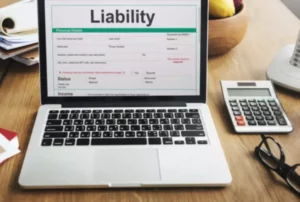Individuals and businesses are required to file their tax returns every year. Doing it yourself, in most cases, is too complicated and time-consuming. This is where financial advisors and tax preparers come in to help. However, not every tax preparer has the same knowledge, qualification, and certification.
Enrolled agents are the only tax preparers who are tested and certified by the federal government of the United States. Unfortunately, many individuals and businesses are not even aware of their existence, partially because there are not that many enrolled agents around the country and the number varies around 50,000 individuals.
The enrolled agent profession appeared back to 1884 when questionable claims have been presented for Civil War losses, and Congress acted to regulate individuals who represent citizens in their dealings with the United States Treasury Department. This means that they existed before CPAs. Enrolled agents are the only federally licensed tax practitioners specialized in taxation and have unlimited rights to represent taxpayers before the Internal Revenue Service (IRS).
Enrolled agents share the same knowledge base as the certified public accountants(CPAs) when it comes to preparing your tax returns. They also share equal unlimited rights to represent taxpayers as CPAs and attorneys. The enrolled agents are federally
licensed, while attorneys and CPAs are licensed by each state, thereby enabling them to serve a broader base of taxpayers. So, enrolled agent salary depends on it.
What is an enrolled agent required in a business? We will talk about this in more detail later but want to note that their expertise in the ever-changing field of taxation enables them to properly file all taxes, save on fees while adhering to all the tax codes and effectively represent taxpayers, including business owners, at all administrative levels within the IRS.
What Does an Enrolled Agent Do?

The unlimited practice rights that enrolled agents have meant that they can represent all taxpayers, including businesses and organizations as well as individuals. Enrolled agents are fully-fledged, very highly qualified tax professionals who advise, serve, and prepare tax returns for individuals, corporations and partnerships and any other individuals or business firms who are obligated to report their taxes.
If you are a taxpayer who is not able to pay taxes, trying to avoid or recover penalties or need assistance with taxation from federally-authorized tax practitioners, then enrolled agents are the right choice for you. Their only focus is taxation, tax practices, and procedures as well as representation and defending of taxpayers before the InternalRevenue Service.
However, not everyone knows that enrolled agents cannot practice before the UnitedStates Tax Court. To be allowed to practice before the US Tax Court, they will need to pass the Tax Court examination. The United States district courts, bankruptcy courts, courts of appeal, and the Supreme Court of the United States will accept only attorneys.
How enrolled agents get credentials?
Enrolled agents need to earn a privilege to represent taxpayers. So, how to become an enrolled agent? To do so, they either need to pass the Special Enrollment Exam (SEE/EA exam) or have a minimum of 5years IRS experience along with meeting other requirements. Moreover, to preserve their status as an enrolled agent, it is essential to complete 72 hours of continuing education every three years.
Enrolled Agent Exam
To become an enrolled agent, one needs to meet the education requirements and pass all three sections of the Special Enrollment Exam, which covers all aspects of federal taxation. In part one, the future agents are tested on taxation of individuals. Within the two years of taking the first test, the other two parts need to be completed. Part two covers businesses and part three – representation, practices, and procedures.
Each part of the enrolled agent exam takes three and a half hours to complete and has 250 questions. After passing the test, they need to apply for enrollment and pass the compliance tests as well as a background check. It should be noted that only less than 1/3 of test-takers pass SEE. Only after all these steps are complete, the individuals can be awarded a certification and unlimited rights to represent their clients.
Passing this exam is not very simple, and besides having an appropriate education, many futures enrolled agents take advantage of additional courses that focus specifically on taxation and the laws, regulations, etc. that are associated with it. The preparation for the Special Enrollment Exam involves studying for twenty or more hours a week for several weeks, depending on the experience of the test taker. This gives them not only a chance to successfully pass the exam and get enrolled but also professionally represent their clients in the future.
Work Experience at IRS
If one has already worked at the IRS, then this is another way to get an enrolled agent certification. For this, an individual must meet the following requirements:
- Must have a minimum of 5 years of experience working at IRS in a position that requires interpretation as well as the application of the tax code and regulations
- Must apply for enrollment with Form 23
- Must undergo a background check. This is needed to verify that the individual has the necessary experience as well as to check how diligent they filed and paid their taxes. Taxes that were not registered or paid on time might lead to a denial of certification.
Continuing Education
Passing the exam or working at the IRS and meeting all the requirements for becoming an enrolled agent is not the end of the road. The enrolled agent must continually stay updated on all the changes in taxation. What is an enrolled agent required to do to ensure this? They are required to renew their license every three years as well as complete 72 hours of continuing education in taxation.
If the enrolled agent is a member of the National Association of Enrolled Agents(NAEA), then he or she will need to complete 90 hours of continuing educations instead of 72 hours of continuing education, with 30 hours of training every year including 2hours of education in ethics. National Association of Enrolled Agents members needs to adhere to the requirements of an honest, knowledgeable, and ethical representation of the taxpayers before the governmental agencies.
Although continued education can be completed at any time during the three years for which they are given the enrollment, enrolled agents must have a minimum of 16 hours of continued education, 2 hours of which is an education in ethics, completed every year. They are bound by a code of ethics, which can be found in the Department of theTreasury’s Circular 230. After a notification from the IRS about the upcoming renewal cycle, enrolled agents will need to complete the necessary paperwork and submit it to the IRS online or through the mail to keep their enrollment.
What is an enrolled agent needed for in business?

Filing and paying business taxes can be complicated, and an increase in IRS enforcement has made the services of the enrolled agent even more necessary in the past years. Enrolled agents specialize in all aspects of taxation. They are the only tax professionals who are tested and licensed by the U.S. government. They can help you with your business tax returns, general tax compliance requirements, as well as other accounting tasks you might have.
There may be situations where an enrolled agent can advocate on your behalf, represent you or communicate with the IRS for you. These include receiving a letter or bill in the mail from the IRS if you cannot pay your tax in full by April 15th or if you haven’t received your refund, if eligible. Since enrolled agents are federally licensed and have unlimited rights to represent taxpayers before the IRS, they are a perfect choice for handling your tax matters and representing you for audits, collections, and appeals.
So, what have enrolled agent benefits for businesses? Let’s quickly review the main advantages of hiring the EA instead of another qualified professional, such as CPA or attorney:
⮚ More expertise in tax matters – enrolled agents are the nation’s only solely dedicated tax professionals who are also required to demonstrate competency in federal tax law continually. This means that you will have much less chance to be audited by the IRS or run into any other liabilities.
⮚ A federal, nation-wide license – you can search for an enrolled agent anywhere in the country. You can also save time and effort if you have businesses operating in different states because you do not have to search for a tax preparer in every state. This can also help companies to save on tax costs if the local CPAs and other tax preparers charge higher than those in other states while getting the same services.⮚ Unlimited practice rights – enrolled agents can provide services such as individual and business returns, including corporations, partnerships, and limited liability companies, payroll tax issues, sales tax, and rental income returns as well as more complicated tax returns, business consultation, and advising, audit representation, bookkeeping and much more.⮚ Round the year work – tax services are around year work for the enrolled agents because they not only help with tax returns during the tax season but also help with tax planning, represent their clients before the Internal Revenue Services, etc.⮚ Representation before the IRS – no business is safeguarded against audits, examinations, payments, collections, and appeals. Thus, it is crucial that your tax preparer can also stand before the Internal Revenue Services on your behalf to negotiate a settlement, conduct hearings, and manage appeals and help your business run without any hick-ups and issues.
Conclusion
If you are looking for experienced, well-trained tax professionals who will prepare your tax return and be there to represent you before the IRS, then EA is your top choice. When hiring the enrolled agent, instead of CPAs or attorney who might not even specialize in taxation, you can be confident that this person will handle any tax situations in the most professional way while adhering to the highest ethical standards.
You can find an enrolled agent to provide services for your business by searching theNational Association of Enrolled Agents (NAEA) in the “Find a Tax Expert” directory. You also might want to look for a specialist on local yellow pages, looking for a tax preparer who has specified that he or she is an enrolled agent/tax professional or hasEA at the end of his/her title. Tax preparation companies that are widely used can also have enrolled agents on their team.

















